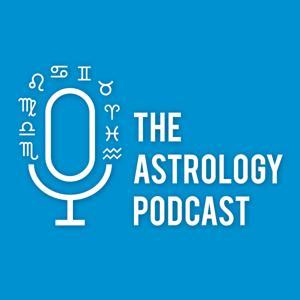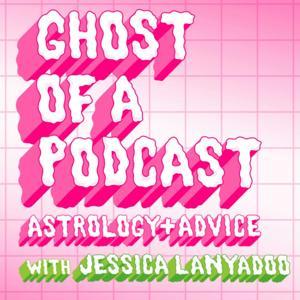📚 Resources and Links:
* Sign up for the North Node waitlist here
* Inquire about 1:1 work with Michelle here
* Holisticism Resources 4 u:
* Ruthless Clarity — an 8-week email course designed to help you achieve crystal-clear certainty about your goals, desires, and energy allocation
* How to Begin: A Project Planning Class — a 90-m on-demand class that teaches you exactly how to sketch a effervescent project plan that’ll fill you with glee and inspiration and instantly banish procrastination and overwhelm, so your brilliant ideas can finally come to life.
* The Subconscious Audit — an 11-day diagnostic framework that helps you identify what’s holding you back and making you *feel* blocked. Because you’re never actually blocked
* The New Age Playbook for Spellbinding, Can’t-Stop-Reading Copy — a 35-page downloadable workbook to take your writing from blah to bingeable
To be blunt and unpoetic about it, a way to increase your surface area for synchronicities is to just start noticing things.
In the Feldenkrais Method we talk a lot about habituation and differentiation. The whole point of a Feldenkrais class can be boiled down to this: I’m trying to bring your attention to your habitual way of being, moving, and thinking by introducing some type of novelty into your experience; the novelty helps you notice the things you’ve grown accustomed to which have been “invisibilized” in your life.
By bringing your new awareness online, you give yourself options for responding to the world differently. You illuminate choices. You create doorways where there were once walls.
And that’s the whole crux of synchronicity practice — we’re trying to create more opportunities for synchronicity to show itself.
Archetype practice can do this, sure. But today I want to talk about an even more obvious option for inviting a different reality into being — altar work.
What’s an altar? An altar is a place made sacred.
The word sacred comes from the late Middle English sacre, which means to ‘consecrate.’ An object or place that’s been consecrated has been set apart from the average and the ordinary to accomplish something specific. We might also describe these objects or places as holy.
A sacred space is a place where wonder can be glimpsed. - Joseph Campbell
When we focus our attention on building and tending to altars we transform a space from regular-degular — mundane, if you want to get fancy about it — to holy and magical. An IKEA BILLY bookshelf becomes a hallowed shrine. The top of your ancient apartment refrigerator turns into a reminder of the omnipresence of our ancestors. The dashboard of your somehow-still-kicking Honda Civic becomes “a sacred place,” as my obsessed toddler has taken to saying. (Shoutout to the Moana writers for introducing that banger to our home, it’s familial canon now)
The spaces we might take for granted because we’ve become habituated to thinking of them in a certain way are called into new light. We can see things differently … And if we begin to see one thing differently, maaaaaybe JUUUUUUSST MAYBE we can open up to the possibility of seeing many things differently.
How you use your altar depends entirely on your cultural and spiritual beliefs and practices. But altar practice itself? Universelle. We find evidence of altars and shrines going waaaaaaay back to the Paleolithic era. Permanent sacred spaces tucked into narrow caves and carved into stone underhangs. ‘Mobile’ altars that could be taken on-the-go by migratory peoples. People have been doing this s**t forever.
I think that altar creation is hardwired into our DNA, even if that’s not how we necessarily clock it these days. Is a thoughtfully designed tablescape for a dinner party not an altar to kinkeeping? Is an organized, dedicated crafting corner not a shrine to creativity? Is a well-tended back garden not a cathedral of nature?
All I’m saying, really, is that making an altar doesn’t have to be this buttoned up ceremonial, Wicca-adjacent act full of vermillion red candles and money bowls and scrying mirrors and the menstrual blood collected during the Full Moon (Although… I do love the drama, as a Scorpio Moon tosses hair) You already know how to make an altar, but maybe do it with a little more oomph and awareness, you know?
There are many ways to make an altar, and usually we make them in devotion to something — a deity, a loved one, an intention. Practices vary dramatically. If you have the privilege of knowing your ancestral origins, studying those traditions is always where I’d point you first for more specific guidance.
But for our purposes, I suggest starting with a small altar (or refreshing your usual altar) organized for Winter.
A Winter’s Altar
May I go goth for a sec? When I pull the Death card, my mind goes straight to Winter. (People with 13s in their Matrix of Destiny chart — eyes on me! Eyes on me! This applies to you!) The Death card isn’t a harbinger of doom, more a reminder of the cyclical nature of all things in the universe.
Eventually, everything ends! (positive)
Eventually, everything ends. (foreboding)
The Spectre of Death tills a fallow field — there is no life here, yet. Because it’s winter! The field needs time to rest in order to bloom in the spring. All things in their proper timing.
It’s not incredibly groundbreaking to be like, “Oh, winter, rest, yeah?” And to me, that’s actually not what this card or season tells us. Death still works the field in the winter, he ain’t vacaying. This is the time for working in the dark — at inky pre-dawn and late afternoons blanketed in shadow — deliberately and devotionally. Winter air is crisp and clear — Death’s line of vision to the horizon is unobscured. You can see in the dark, eventually, because your eyes adjust if you sit still in it for long enough. The opportunity to bloom in spring is created in the winter.
How to assemble (resist the urge to overconsume, I beg!)
Circling back to the point of all this — the purpose of altar building is to bring the sacred into the mundane. To get started, we’ll need a few elements:
A place to put your altar
Doesn’t have to be big or impressive, a window sill or a corner of a bookshelf or a side table in your entry will do just fine (you can also build a traveling shrine to take on-the-go, in which case you’ll need an implement for transport, like an altar cloth or a cigar box)
An intention
Yes, we’re hoping to increase our surface area for synchronicity… but why? What are you hoping the outcome will be for you, when the field around you gives you little nudges of acknowledgement? Health, happiness, healing, spiritual growth, gratitude, love, self-knowing, peace, strength, clarity, intuition, wealth, work opportunities, community, friendship, confidence, direction? I get a sense that most of us here are looking for confirmation of being on the path to something purposeful and living a life that is personally meaningful while contributing to the collective. But pick your thing! A theme, even a capaciously broad one, is important.
Cleansing materials
Literal cleaning supplies (I am currently obsessed with this stuff?), but also ceremonial cleansing tools like salt, incense, smoke, selenite, a bell… all can work, depends on your preference and your practice. I’m partial to copal resin and this incense.
Symbolic and sympathetic totems
Dealers choice, here. There’s really no need to buy anything new, if you don’t want to. Use what you can find in your house, on a walk, etc. Drawing on your intention, meditate on what symbols could represent your focus. Flowers, stones and minerals, saints, dieties, tarot cards, colors, herbs, essential oils — all have culturally associated meanings that you can draw upon to echo your intention. In my opinion, using items that you have personal associations with — a golf tee that reminds you of your grandfather’s love, or gardenias that feel like home because they remind you of your mom — as opposed to meanings that you look up in a book but don’t necessarily feel called to are always going to make a more sagrado space, IYKWIM.
Other items you might want to add to your altar:
* photos of loved ones or beloved/sacred places
* a candle
* coins or cash
* coffee, wine, rum — common in certain cultural practices
* elemental additions for water, earth, fire, wind
* a letter with your intentions written on it
* sigils you’ve designed
* spells you’re working
* protective materials
The main thing for us is to practice seeing things differently. So if you were asking for my advice (not saying you are, but… you’ve read like 600 words on this so we’re kind of at that point in the story, right? Not too presumptuous of me to go there?), I would encourage you to set up your altar in a space you walk past every day but tend to overlook. For me, this is the windowsill at the top of the stairs just before you enter our bedroom.
Set up your altar with some awareness
Maybe pause the podcast you’re listening to before you get going. Maybe pull a card real quick. Maybe say a prayer, if you feel moved to. Maybe a recite poem. (What’s the difference?)
Now here’s the invitation — notice what happens when you invite the sacred into the every day. Resist the urge to habituate, to walk past the altars of your life without acknowledgement.
Liked this?You’ll love Holisticism and our podcast The Twelfth House.Want to learn more about intuitive business and creator-ship?Sign up for the North Node waitlist here.Into my persnickety personality and strategic perspective?Inquire about 1:1 advising with me here.
This is a public episode. If you'd like to discuss this with other subscribers or get access to bonus episodes, visit thetwelfthhouse.substack.com/subscribe




































